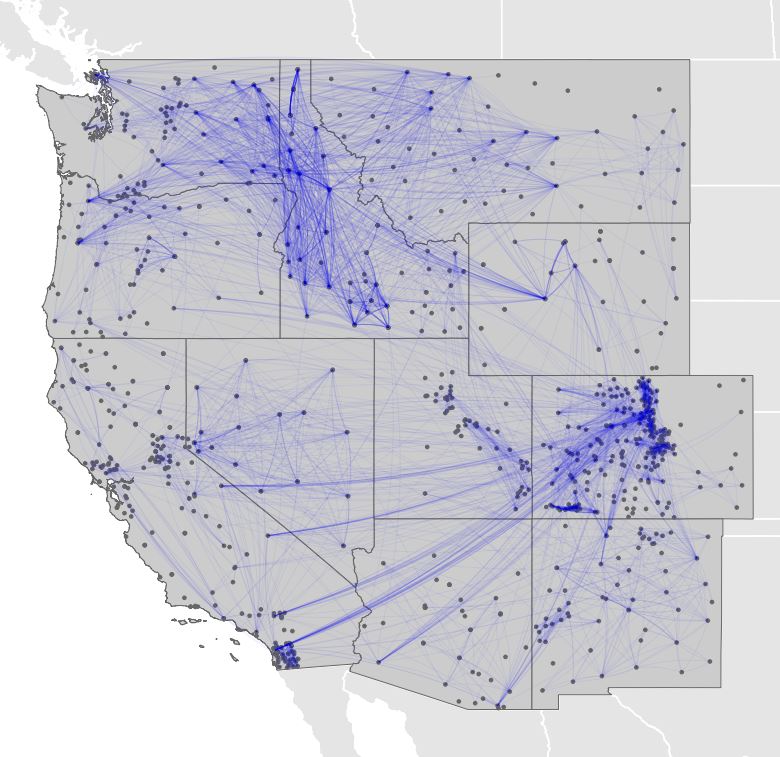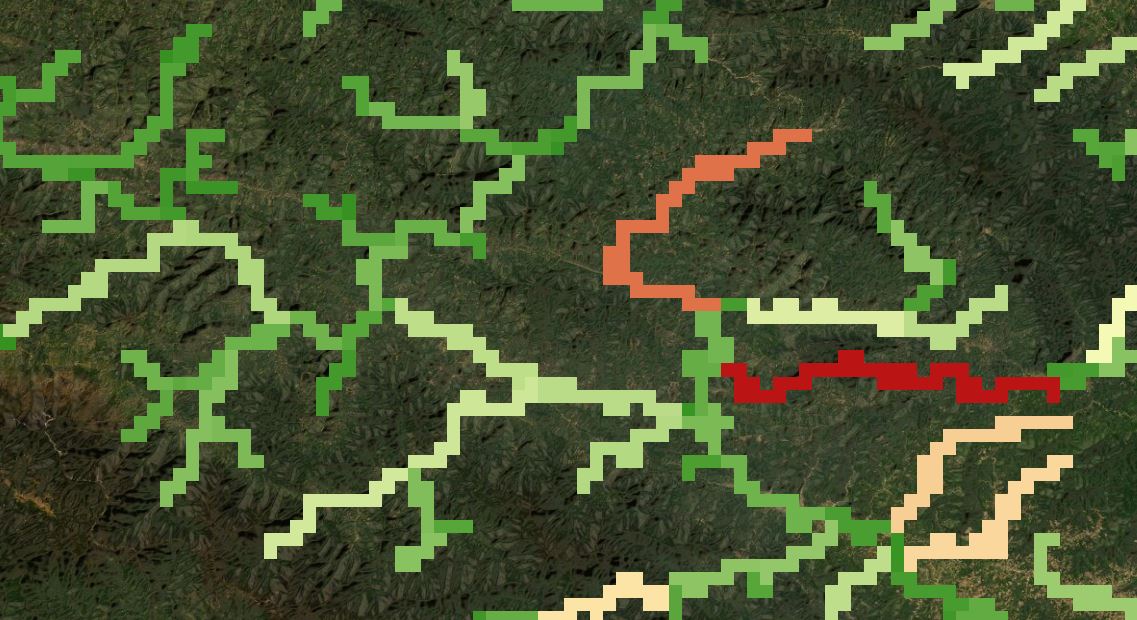Current projects
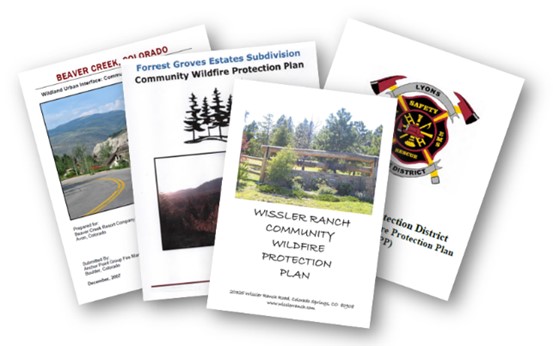
CoNIFER project
Recent years have demonstrated the substantial threat that wildfires pose to communities across the U.S. The Community Networks in Fire-Environment Resilience (CoNIFER) project evaluates how local-level wildfire protection planning processes shape social interaction and consequently the implementation of risk mitigation measures at both local and regional scales. Collaborators include Jon Salerno (Colorado State), Eric Toman (Ohio State), Tony Cheng (Colorado State), Paige Fischer (University of Michigan), and Max Nielsen-Pincus (Portland State). The CoNIFER project is supported by the National Science Foundation Decision, Risk and Management Sciences Program (project description).
CWPP Portal and Data Library
Community Wildfire Protection Plans (CWPPs) are collaborative frameworks that outline local priorities for wildfire risk mitigation. Since CWPPs were introduced in the Healthy Forests Restoration Act two decades ago, thousands of plans have been developed across fire-prone regions of the US. Guidance for plan development is relatively vague, which has spurred considerable variation in the scope, scale, and goals of these planning processes. The CWPP Portal and Data Library offers 20,000+ records of individuals’ participation in 1,000+ CWPPs in 11 states of the fire-prone US West, attributes of individuals and plans, and the plan documents themselves. All data are available for download on the CWPP Portal and Data Library website. Collaborators include Max Nielsen-Pincus, Cody Evers, and Matt Bauer (Portland State) and Emily Palsa (Ohio State).
Landscape-scale conservation policy outcomes project
The “Identifying conditions for successful landscape-scale conservation policy implementation in Vietnam” project evaluates the interplay between conservation stakeholder networks and the ecological and livelihoods impacts of landscape-scale forest conservation in Vietnam. Collaborators include Thuy Pham (Center for International Forestry Research), Caleb Gallemore (Lafayette College), Darla Munroe (Ohio State), and Kimberly Ordonez (Ohio State). The project is supported by the United States Agency for International Development, through the Partnerships for Enhanced Engagement in Research (PEER) program. For more information, please visit the project description on the NAS website.
AWaRE project
The Appalachian Water Research Exchange (AWaRE) project is a community-led participatory water quality research initiative. Led by Natalie Hull (Ohio State), other collaborators include Joe Campbell, Cassie Rosita Patterson, Jasper Waugh-Quasebarth, Santina Contreras, Daniel Ma, and Lisa Shahin. The project is supported by the Sustainability Institute at Ohio State. For more information, visit the project website.
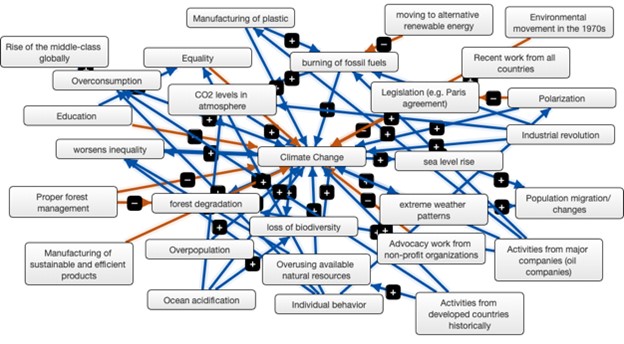
Applying a systems perspective to understand climate change perception
In recent years, a plethora of research work has focused on understanding the predictors of climate change perception. However, little work has been done to assess people’s cognitive capacity to grasp the complexity of climate change. Adopting a systems perspective, the proposed research aims to assess how individuals engage in systems thinking to understand climate change by testing hypotheses about predictors that influence engaging in systems thinking, the concepts and elements that form an individual’s perception and how these concepts connect with each other; an approach that has not been widely used in studying climate change perception. Moreover, the research explores how engaging in systems thinking translates into adoption of pro-environmental behavior.

Columbus Climate Adaptation Network Analysis
In the greater Columbus area, there are many different organizations that perform environmental management actions to adapt to many different issues posed by climate change. Using Columbus climate change adaptation as a study system, this project aims to understand how environmental stakeholders navigate complex social-ecological settings. This project is led by current PhD students Harrison Fried and Kimberly Ordonez, as well as Matt Hamilton and Ramiro Berardo. This project is in collaboration with Joe Campbell and Cecil Okotah of the Environmental Professionals Network (EPN) and is funded by the Sustainability Institute (SI) at Ohio State.
Completed projects
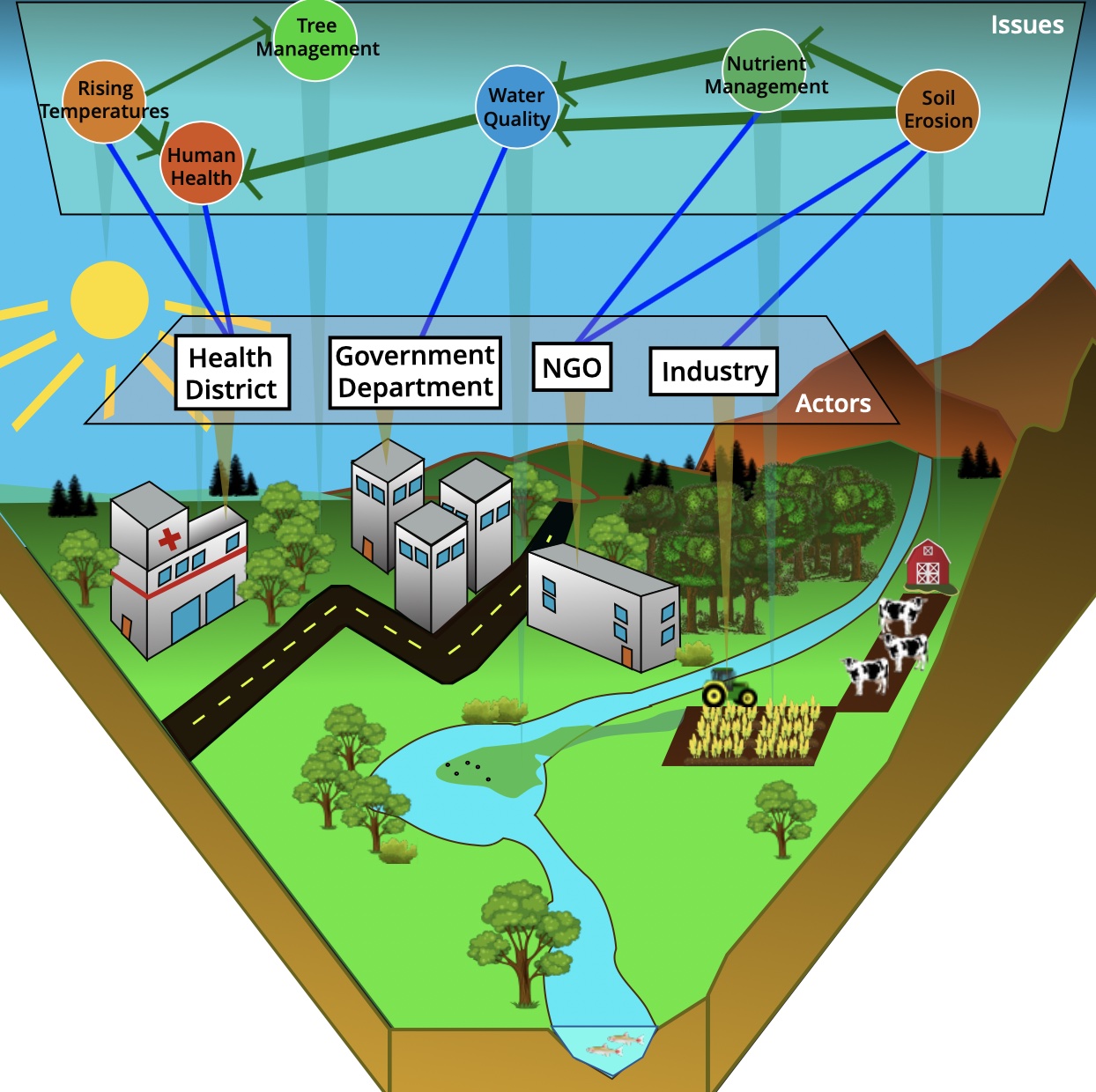
Ohio Climate Change Adaptation
In this project, led by current PhD student Harrison Fried, and in collaboration with Matt Hamilton and Ramiro Berardo, climate change adaptation governance in Ohio is used as a model study system to evaluate conditions and incentives that drive actors to manage for interdependent issues or to participate in forums in ways that are collectively beneficial. We analyze climate change governance as a three-mode network of interrelations among actors, forums, and policy issues related to climate change adaption in Ohio.
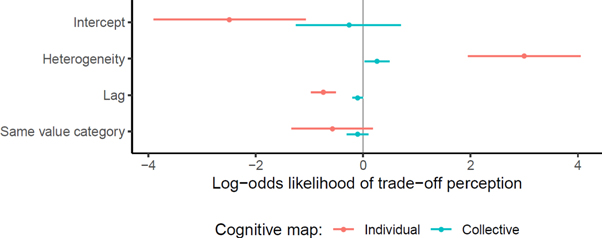
Linking social and ecological embeddedness, wildfire risk, and collective action
Wildfires burn large areas of forestland each year throughout Oregon’s Eastern Cascades, threatening human health and safety, local economies, and numerous ecosystem services. This project explored how diverse groups of people (forest owners, representatives of environmental groups, ranchers, fire department chiefs, members of the timber industry, representatives of federal and state agencies) conceptualize wildfire risk. The project mapped relationships among these groups of people to improve understanding of how patterns of social interaction relate to cognition of wildfire risk. Work was supported by the Directorate of Social, Behavioral and Economic Sciences of the National Science Foundation (full description).
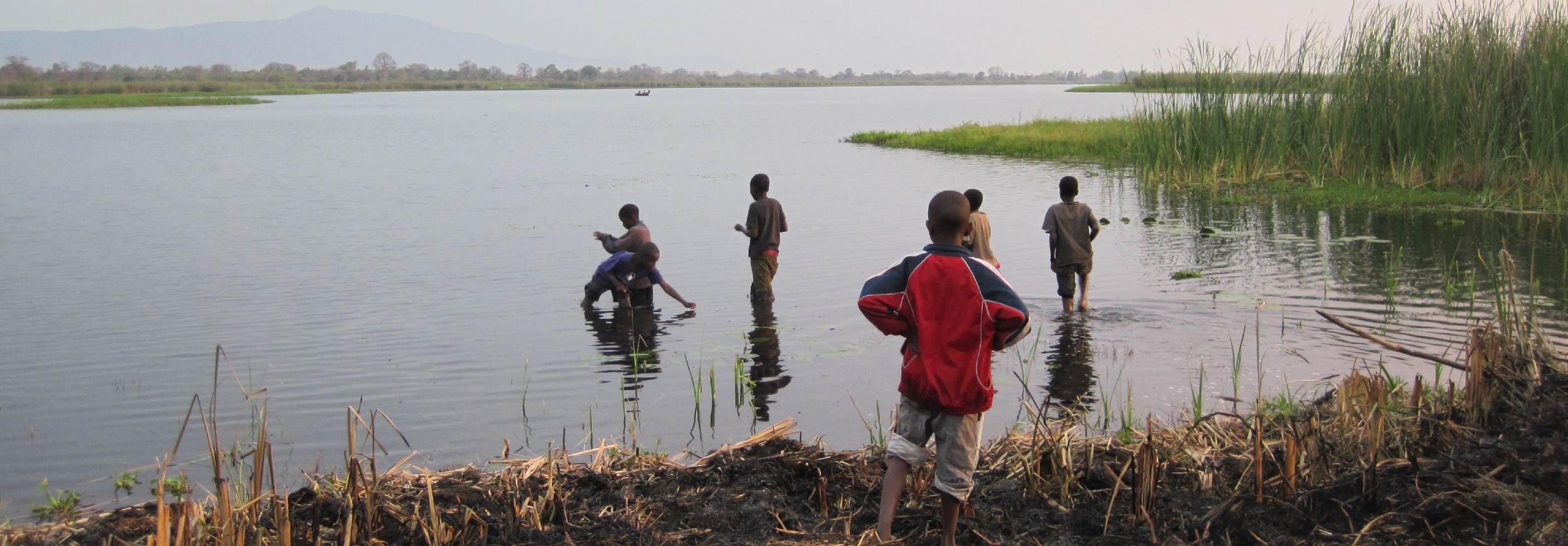
Policy networks and climate change adaptation in the Lake Victoria region
The project improved understanding of the role of institutions in developing adaptive capacity to the near-term effects of climate change in the Lake Victoria region of East Africa. Key adaptive capacity issues in the Lake Victoria region include disruptions to agricultural productivity, altered flood regimes, threats to the viability of fisheries, and shifts in plant and animal habitat suitability. Within the past few decades, numerous collaborative institutions have emerged to help address these adaptive capacity issues. This study explored factors that contribute to the structure of inter-organizational networks and policy networks, and evaluated how those networks function to improve adaptive capacity in the Lake Victoria region.
